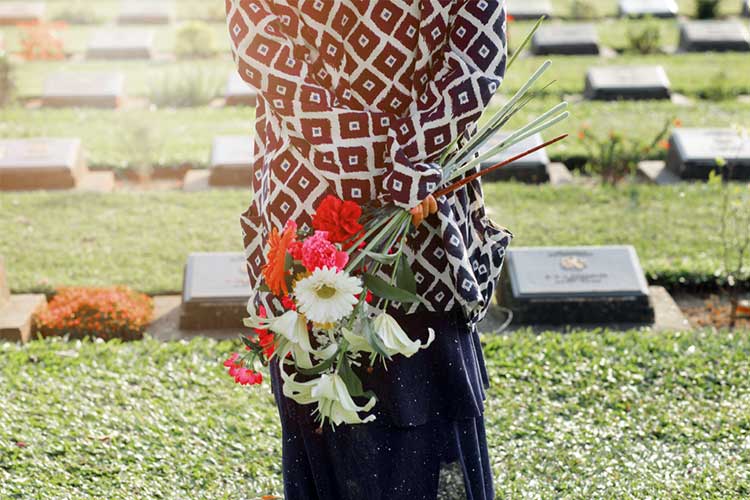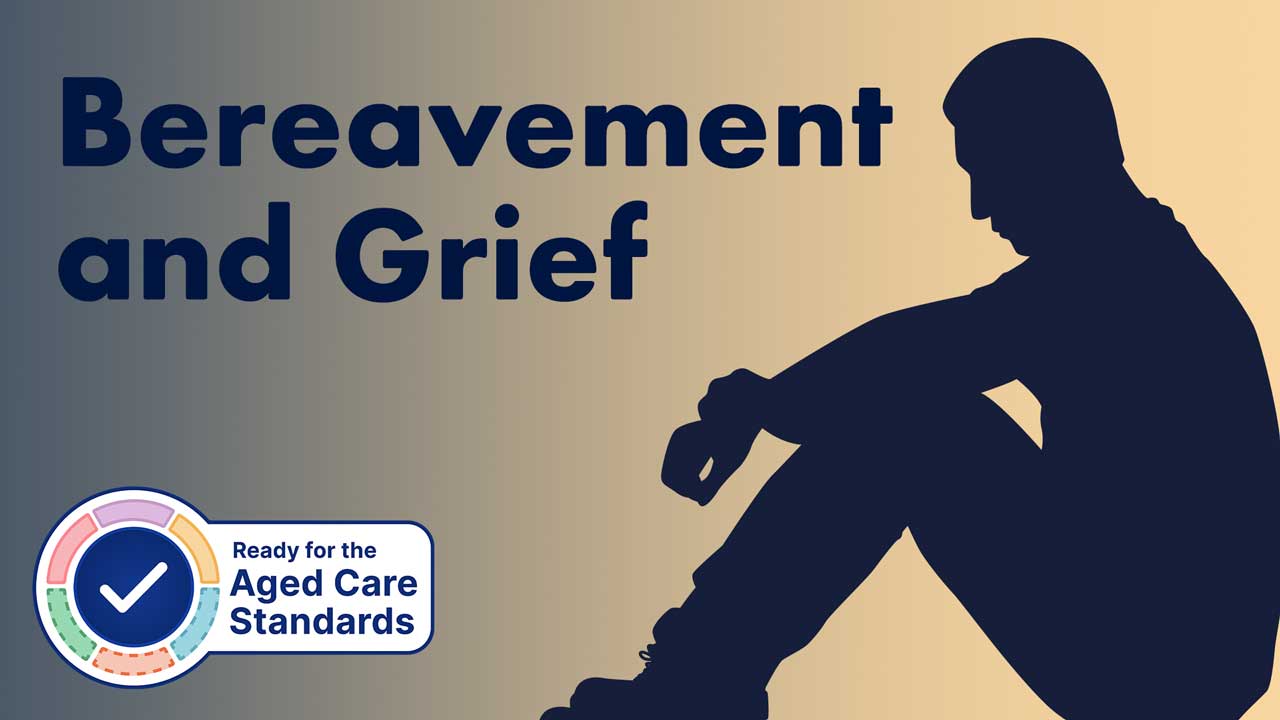Grief is a natural response to loss.
It occurs in response to the state of being bereaved or ‘deprived’, most commonly when someone close to us passes away. However, it’s not limited to that experience only.
The definition of ‘bereave’ is:
- To deprive ruthlessly, especially of hope or joy.
- To make desolate through loss, especially by death.
(Macquarie Dictionary 5th Edition)
As well as occurring in the aftermath of the death of a loved one, feelings of grief can also accompany losses such as the diminishing of one’s health or the health of someone close or the end of a significant relationship (Psychology Today 2021).
Grief is a difficult concept to grapple with because it’s not only dependent on physical and psychological factors but is also influenced by social and cultural manifestations of emotion. Furthermore, this manifestation is influenced by circumstance as well as a person’s values and beliefs; everyone has their own unique and personal sense of what grief feels like (Ernstmeyer & Christman 2021).
As a healthcare professional, you will witness loss and grief on a more frequent basis than people working in other professions. Therefore, it’s crucial for you to understand, identify and advise on grief. It’s also important to acknowledge the impact that witnessing loss and grief on such a large scale will have on your own wellbeing.

The Nature of Bereavement
Bereavement is often used interchangeably with the terms ‘mourning’ and ‘grief’. In essence, these are all related to the experience of a loss. However, they have slightly different definitions:
- Grief is the internal emotions experienced after a loss
- Mourning is the outward expression of grief (e.g. attending a funeral)
- Bereavement is the period of time after a loss, during which a person may experience grief and partake in mourning.
(Roldan 2021)
Symptoms of Grief
Grief is associated with a variety of emotions.
For most people going through bereavement, grief symptoms will usually decrease between six months and two years following the loss (Psychology Today 2021).
Psychological manifestations of grief may include:
- Overwhelming sorrow
- Continual sadness
- Anger directed inwardly or outwardly
- Fear of consequences in the short and long-term
- Guilt, particularly if a person feels they may have contributed to the loss in some way
- Relief, which often occurs following a loss that happened after a long period of anticipation
- Loneliness and a sense of isolation and disconnect
- Emotional numbness
- Longing for things to be as they once were
- Anxiety about current events and the future in general
- Apathy, arising from the loss of a sense of meaning, which may manifest in a lack of interest in participating in regular life
- Feelings of vulnerability when a person’s private loss becomes public
- Abandonment - the feeling that the loss they encountered left them deliberately in some way.
(Healthdirect 2022; Good Grief 2020)

Somatic manifestations of grief may include:
- Crying
- Infections
- Headaches
- Gastrointestinal upsets
- Elevated heart rate
- Shortness of breath
- Chest tightness
- Weakness of limbs
- Loss of appetite
- Inability to concentrate
- Poor memory
- Insomnia
- Non-specific malaise.
(Good Grief 2020; CareSearch 2021; Mughal et al. 2023)
Complicated Grief
Most people experiencing bereavement will come to cope with their loss over time. However, in some cases, grief is so debilitating that the bereaved person will have difficulty recovering from the loss and resuming their life, even after a significant period of time. This is known as complicated grief or persistent complex bereavement disorder (Mayo Clinic 2022).
Complicated grief negatively impacts a person’s relationships, employment and life. It is generally characterised by a sustained intensity of grief over a very long period of time (Mayo Clinic 2022).
Risk factors for complicated grief include:
- Traumatic loss
- Sudden loss
- Witnessing the death
- Not being present during the death
- The loss of a child
- Having a close relationship with the deceased person
- Multiple losses, either over time or all at once
- A history of depression, separation anxiety or post-traumatic stress disorder (PTSD)
- Coexisting stressors, e.g. financial hardship
- An insecure childhood
- Early separation from one or both parents
- Insomnia
(Mayo Clinic 2022; Ohwovoriole & Block 2024)

Treatment for Grief
People who are experiencing normal grief will not necessarily require specialist counselling. However, they may benefit from reassurance, acknowledgement of their losses and access to information (CareSearch 2021).
For others, grief counselling or therapy may be beneficial. Counselling may help a person work through the grieving process by allowing them to voice their emotions and identify ways of coping (Psychology Today 2021).
In the case of complicated grief, therapy may be beneficial in the form of specialist bereavement counselling, palliative care services, cognitive behavioural therapy (CBT) or complicated grief therapy (CGT) (Psychology Today 2021; CareSearch 2021).
CBT focuses on changing a person’s thought patterns to alter their response to situations. CGT involves setting recovery goals, talking about the loss and making plans for the future (Psychology Today 2021).
Bereavement and Grief Under the Strengthened Aged Care Quality Standards
Standard 5: Clinical Care - Outcome 5.7: Palliative and End-of-life care (Action 5.7.3) under the strengthened Aged Care Quality Standards requires aged care organisations to provide an older person’s loved ones with information about the dying process, loss and bereavement as part of palliative care (ACQSC 2024).
Acknowledging the Effect Loss has on You
Healthcare professionals are constantly confronted with loss and grief in their professional roles, which can lead to considerable stress and burnout (palliAGED 2024).
It’s important to remember to look after yourself, too. It may be helpful to:
- Acknowledge the loss
- Give yourself space to feel different emotions
- Acknowledge the role you played in caring for the person and their family
- Talk about the loss with a trusted person
- Seek support if needed
- Find healthy coping mechanisms
- Maintain a healthy diet, reduce alcohol intake, get adequate sleep and exercise
(HSE 2022)
Conclusion
Bereavement does not follow a set pattern - it is experienced differently from person to person and across cultures. For many, the effects of bereavement will become more manageable over time. In the case of complicated grief, there are treatment options available.
Test Your Knowledge
Question 1 of 3
What is complicated grief?
Topics
Further your knowledge
 Free
Free Free
Free Free
Free
References
- Aged Care Quality and Safety Commission 2024, Standard 5: Clinical Care, Australian Government, viewed 29 May 2024, https://www.health.gov.au/resources/publications/strengthened-aged-care-quality-standards-august-2025?language=en
- CareSearch 2021, Bereavement and Grief, CareSearch, viewed 29 May 2024, https://www.caresearch.com.au/tabid/6219/Default.aspx
- Ernstmeyer, K & Christman, E 2021, ‘Chapter 17 Grief and Loss’, Nursing Fundamentals, viewed 29 May 2024, https://www.ncbi.nlm.nih.gov/books/NBK591827/
- Good Grief 2020, Manifestations of Grief, Good Grief, viewed 29 May 2024, https://good-grief.org/wp-content/uploads/2020/09/Manifestations-of-Grief.pdf
- Health Service Executive 2022, Coping with Death and Grief as a Healthcare Worker, HSE, viewed 29 May 2024, https://www2.hse.ie/mental-health/life-situations-events/bereavement/healthcare-worker-grief/
- Healthdirect 2022, Grief and Loss, Australian Government, viewed 29 May 2024, https://www.healthdirect.gov.au/grief-loss
- Mayo Clinic 2022, Complicated Grief, Mayo Clinic, viewed 29 May 2024, https://www.mayoclinic.org/diseases-conditions/complicated-grief/symptoms-causes/syc-20360374
- Mughal, S et al. 2023, ‘Grief Reaction and Prolonged Grief Disorder’, StatPearls, viewed 29 May 2024, https://www.ncbi.nlm.nih.gov/books/NBK507832/
- Ohwovoriole, T & Block, DB 2024, ‘What Is Complicated Grief?’, Verywell Mind, 5 March, viewed 29 May 2024, https://www.verywellmind.com/complicated-grief-symptoms-diagnosis-and-treatment-5089396
- palliAGED 2024, Tips for Nurses: Grief and Loss Among Staff, palliAGED, viewed 29 May 2024, https://www.palliaged.com.au/Portals/5/Documents/Practice-Tip_Sheets/Grief-and-Loss-among-Staff-Nurses.pdf
- Psychology Today 2021, Bereavement, Psychology Today, viewed 29 May 2024, https://www.psychologytoday.com/au/conditions/bereavement
- Roldan, K 2021, What’s the Difference Between Grief, Mourning, and Bereavement?, US Urns Online, viewed 29 May 2024, https://www.usurnsonline.com/grief-loss/grief-mourning-bereavement/

